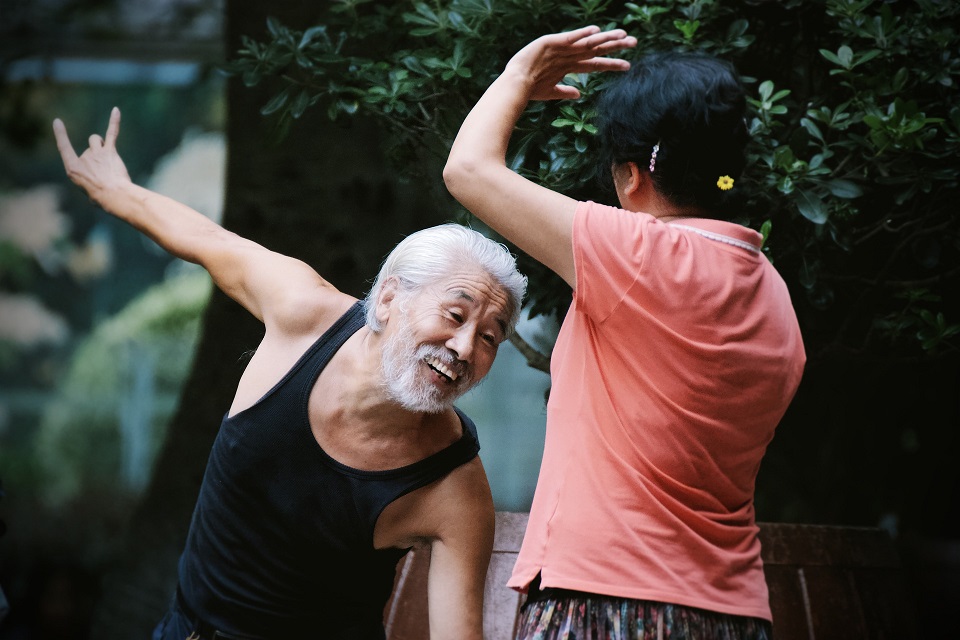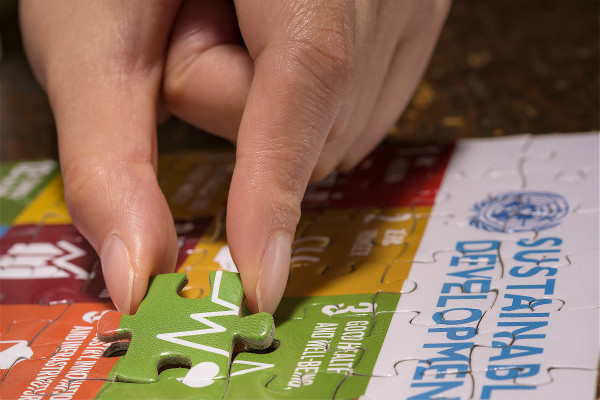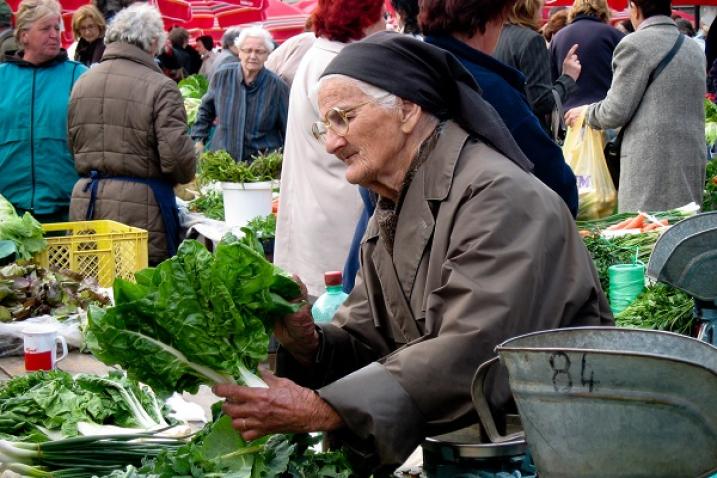The COVID-19 pandemic is causing untold fear and suffering for older people across the world. Beyond its immediate health impact, the pandemic is putting older people at greater risk of poverty, discrimination and isolation. It is likely to have a particularly devastating impact on older people in developing countries.
UN Secretary-General António Guterres
Pandemics: Do They Change How We Address Age and Ageing?
The year 2020 marks the 75th Anniversary of the United Nations and the 30th Anniversary of the International Day of Older Persons. This year has also seen an emergence of COVID-19, that has caused an upheaval across the world. Considering the higher risks confronted by older persons during the outbreak of pandemics such as COVID-19, policy and programmatic interventions must be targeted towards raising awareness of their special needs. Recognizing older persons contributions to their own health and the multiple roles they play in the preparedness and response phases of current and future pandemics is also important.
This year has also been recognised as the “Year of the Nurse and Midwife”. International Day of Older Persons 2020 will highlight the role of the health care workforce in contributing to the health of older persons, with special recognition of the nursing profession, and a primary focus on the role of women - who are relatively undervalued and in most cases inadequately compensated.
The 2020 observance will also promote the Decade of Healthy Ageing (2020-2030) and help bring together UN experts, civil society, government and the health professions to discuss the five strategic objectives of the Global Strategy and Action plan on Ageing and Health while noting the progress and challenges in their realization. The global strategy is well integrated into the Sustainable Development Goals ( SDGs), while ageing issues cut across the 17 goals, especially Goal 3 which aims to “ensure healthy lives and promote well-being of all at all ages”. As stated by Dr. Tedros Adhanom Ghebreyesus (Director-General, WHO) “acting on the strategy, is a means for countries to implement the 2030 Agenda for Sustainable Development and ensure that every human being regardless of age will have an opportunity to fulfill their potential in dignity and equality”
The 2020 theme aims to:
- Inform participants about the strategic objectives for the Decade of Healthy Ageing.
- Raise awareness of the special health needs of older persons and of their contributions to their own health and to the functioning of the societies in which they live.
- Increase awareness and appreciation of the role of the health care workforce in maintaining and improving the health of older persons, with special attention to the nursing profession
- Present proposals for reducing the health disparities between older persons in the developed and developing countries, so as to “Leave no one behind”.
- Increase understanding of the impact of COVID-19 on older persons and its impact on health care policy, planning, and attitudes.
Older Persons & Covid-19
Since the onset of the pandemic, the United Nations has given priority to the needs of older persons in its collective preparedness and response action at global, regional and country level.
Background
On 14 December 1990, the United Nations General Assembly designated October 1 as the International Day of Older Persons (resolution 45/106). This was preceded by initiatives such as the Vienna International Plan of Action on Ageing, which was adopted by the 1982 World Assembly on Ageing and endorsed later that year by the UN General Assembly.
In 1991, the General Assembly adopted the United Nations Principles for Older Persons (resolution 46/91). In 2002, the Second World Assembly on Ageing adopted the Madrid International Plan of Action on Ageing, to respond to the opportunities and challenges of population ageing in the 21st century and to promote the development of a society for all ages.
The composition of the world population has changed dramatically in recent decades. Between 1950 and 2010, life expectancy worldwide rose from 46 to 68 years. Globally, there were 703 million persons aged 65 or over in 2019. The region of Eastern and South-Eastern Asia was home to the largest number of older persons (261 million), followed by Europe and Northern America (over 200 million).
Over the next three decades, the number of older persons worldwide is projected to more than double, reaching more than 1.5 billion persons in 2050. All regions will see an increase in the size of the older population between 2019 and 2050. The largest increase (312 million) is projected to occur in Eastern and South-Eastern Asia, growing from 261 million in 2019 to 573 million in 2050. The fastest increase in the number of older persons is expected in Northern Africa and Western Asia, rising from 29 million in 2019 to 96 million in 2050 (an increase of 226 per cent). The second fastest increase is projected for sub-Saharan Africa, where the population aged 65 or over could grow from 32 million in 2019 to 101 million in 2050 (218 per cent). By contrast, the increase is expected to be relatively small in Australia and New Zealand (84 per cent) and in Europe and Northern America (48%), regions where the population is already significantly older than in other parts of the world.
Among development groups, less developed countries excluding the least developed countries will be home to more than two-thirds of the world’s older population (1.1 billion) in 2050. Yet the fastest increase is projected to take place in the least developed countries, where the number of persons aged 65 or over could rise from 37 million in 2019 to 120 million in 2050 (225%).
Change the Way You Think About Age!
Did you know?
- By 2020, the number of people aged 60 years and older will outnumber children younger than 5 years.
- Over the next three decades, the number of older persons worldwide is projected to more than double, reaching more than 1.5 billion persons in 2050,and 80% of them will be living in low- and middle-income countries.
- The COVID-19 pandemic may significantly lower older persons’ incomes and living standards. Already, less than 20% of older persons of retirement age receiving a pension.
Ageing and health
A longer life brings with it opportunities, not only for older people and their families, but also for societies as a whole. Additional years provide the chance to pursue new activities such as further education, a new career or pursuing a long neglected passion. Older people also contribute in many ways to their families and communities. Yet the extent of these opportunities and contributions depends heavily on one factor: health. Learn more.
Events
The 2020 commemorative event will be held virtually on, 1 October 2020 from 9am to 12 pm (New York time). Organized by the NGO Committee on Ageing (New York), the UN Department of Economic and Social Affairs,the Permanent Mission of Argentina to the UN, in collaboration with the Group of Friends of Older Persons, the event will bring diverse participants from NGOs, Member States, academia and civil society.
Resources
Key documents:
- General Assembly Resolution on International Day of Older Persons (A/RES/45/106)
- General Assembly Resolution "Follow-up to the Second World Assembly on Ageing" (A/RES/65/182)
- General Assembly Reports
- Commission for Social Development: Reports on Ageing
Declarations and other instruments:
- Political Declaration and Madrid International Plan of Action on Ageing (2002)
- Berlin Ministerial Declaration (2002)
- Proclamation of Ageing (1992)
- United Nations Principles for Older Persons (1991)
- Vienna International Plan of Action on Ageing (1982)
Useful links
- The International Day of Older Persons (UN DESA)
- Division for Social Policy and Development Ageing (UN DESA)
- Global Issues (Ageing)
- United Nations Population Fund (UNFPA)
- World Health Organization (WHO)
Related Observances
- Decade of Healthy Ageing (2020-2030)
- International Year of Older Persons (1999)
- World Elder Abuse Awareness Day(15 June)
- World Population Day(11 July)
- International Universal Health Coverage Day (12 December)







